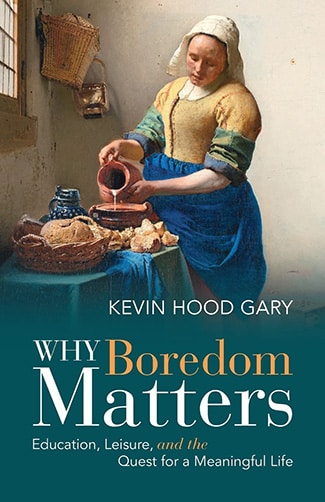A Cure for Existential Boredom

It’s one thing to be bored by having to wait in line or sit through a dry lecture. It’s another thing to be bored with life itself.
What can you do about this kind of existential boredom?
My guest will share a remedy with us today on the show. His name is Kevin Hood Gary, and he’s a professor of education, specializing in the philosophy of education. We begin our conversation with the difference between situational and existential boredom, and how the latter arises when we toggle solely between work and amusement. Kevin argues that we need to add an element of leisure, as the ancients understood it, into our lives, and we talk about what that looks like, and how it requires embracing solitude, study, epiphanies, and love.
Connect With Kevin Hood Gary

Listen to the Podcast! (And don’t forget to leave us a review!)



Listen to the episode on a separate page.
Subscribe to the podcast in the media player of your choice.


